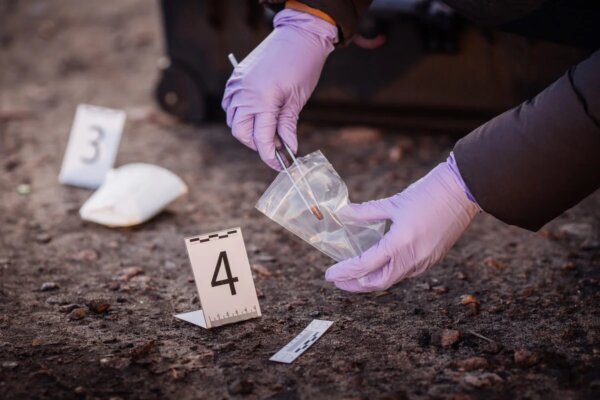Criminology first appeared in the early 19th century. It emerged due to the social demand for a study of anti-social behavior. It’s a comparatively new science. This is reflected in the fact that, until recently, people were largely unaware of its value and the contributions it’s made to society. Criminology is an interdisciplinary science. This means it’s fed by other applied sciences. It studies delinquency, crime, victims, criminals, and social control.
The definition of criminology
Criminology is a fully expanded discipline, both in terms of its scientific and applied dimensions. For this reason, it’s an interdisciplinary science. In other words, it’s the result of a convergence of knowledge and methodologies from other disciplines. These include law, sociology, psychology, psychiatry, anthropology, and forensic medicine, among others.
One of the first discoveries that criminology made was the fact that crime is a problem that varies in intensity. This tends to be dependent on the society in question.
Criminology also concludes that crime is a phenomenon built on the social reaction of the rejection it provokes in citizens. On the one hand, there’s the reality of crime. On the other hand, there’s the social elaboration of crime. These two different dimensions have been subjected to over a hundred years of criminological research.
Based on these two premises, criminology is the science that studies criminal behavior as well as the social reaction to that behavior.
What it studies
Experts adopt one of two clearly differentiated positions regarding the object or objects of study.
Firstly, there are the reductionists. They argue that the object of study is the same as that of criminal law: crime. Furthermore, they claim that criminology itself lacks its own object of study.
Secondly, there are other experts who adopt the more widely followed position, which claims that there are five objects of study:
- Crime as a social phenomenon.
- Crime as an individual and group action.
- Criminals as actors who commit crimes.
- Victims, or the passive people who suffer the consequences of crime.
- Social control as a reaction to crime.
Like the reductionist approach, this stance was highly criticized. In fact, critics claim that it isn’t possible to build a true science with claims that are so diverse.
Criminology has several purposes, including prevention and intervention. In other words, it aims to control and reduce criminal occurrences, as well as rehabilitate offenders.
Criminology and criminalistics aren’t the same
Today, many people think crime and criminology are equal terms. However, they don’t. Criminology is a science that’s still being consolidated. Most people learn about it in television series that are actually far from reality. In these shows, they tend to misuse the word criminology to refer to functions that are typical of the field of criminalistics. This causes confusion.

What’s the difference between them?
Criminalistics is the scientific discipline that determines the existence of a criminal act. Furthermore, it’s responsible for the collection of test results and criminal evidence.
Criminology tries to answer, via empirical research, what social or individual factors influence people’s criminal behavior. In addition, how control systems influence the sustainability of criminal behavior.
Criminalistics also assists in identifying the people responsible for a criminal act and their degree of participation in it. Although the two disciplines are very different, they tend to complement each other.
The post Criminology, the Study and Prevention of Crime appeared first on Exploring your mind.













Comments